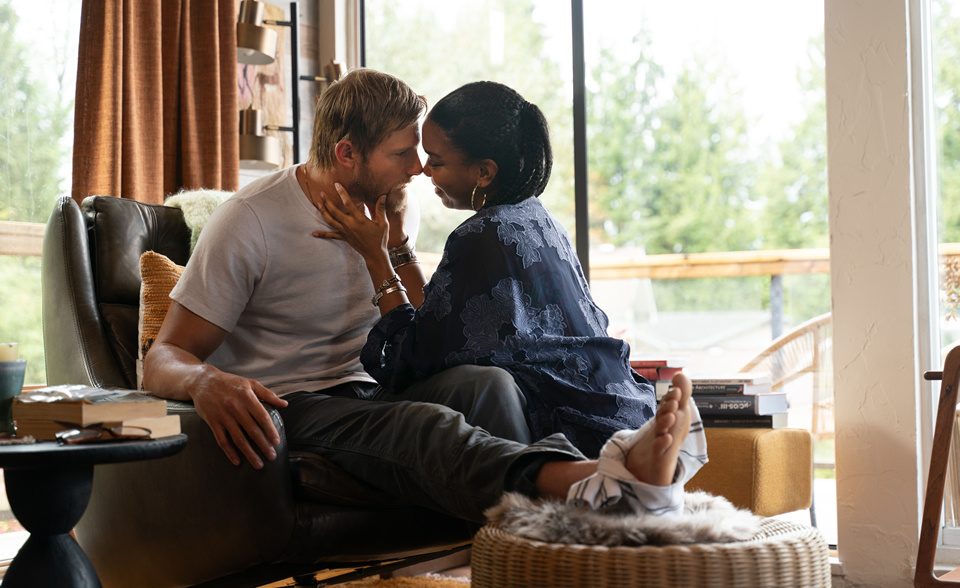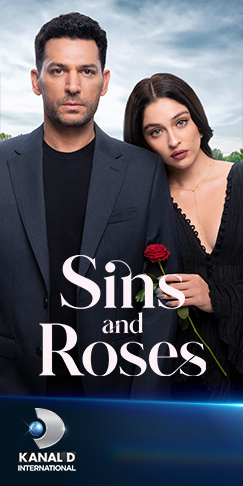The showrunner of the new six-episode limited series, Earth Abides, set to premiere in MGM+ on December 1st in the US, shares what makes this title, based on George Stewart’s book, unique in the populated post-apocalyptic subgenre.
What about love for a change? That is one of the central themes of Earth Abides, the revered science fiction novel written by George Stewart, and one of the elements that separates Amazon MGM Studios’ newest adaptation, bound to premiere on MGM+, in the US, on December 1st.
The series, which will be one of the key titles in the company’s catalogue for Mipcom Cannes 2024, has similar starting points to other narratives among the post-apocalyptic fictions -a universal plague, few survivors and a civilization to be rebuilt; which makes sense, since Stewart’s 1949 novel is a pillar of the subgenre- but the way it develops its characters and, more importantly, the central themes that it chooses to focus on, make it standout among its peers.
“I’d like to describe the show as being counter-culture, because the post-apocalyptic genre is always about using guns or the ‘dark arts’ to survive, while this show says: ‘Actually the greatest weapon, the one undefeated weapon in the history of the world, is love’,” explains Todd Komarnicki, writer and showrunner of Earth Abides.
Komarnicki, known for titles like Sully (2015), shared with ttv details about the upcoming title, who has Alexander Ludwig (Vikings) and Jessica Frances Dukes (Ozark) in the leading roles.
What attracted you to the topics the book deals with?
Well, the fundamental question that the book asks is: if human beings got a second chance at the Garden of Eden, could we get it right this time? Could we be kind enough, be loving enough, and live in harmony with the Earth? And that is the fundamental question that’s at the heart of our show. Because, yes, the ideals are beautiful -love and sacrifice, family and community- but when you have to live in the everyday, when you don’t know if you can trust your neighbor, when you don’t know that it’s safe to walk outside in the woods, when your children feel like they’re living at the edge of danger all the time, how do you live with your best self? How do you put other people first? How do you think about love first, when you feel like your life is constantly under a threat?
And that’s why I like the show for right now, because I think people all over the world are feeling under threat. I think it’s a very particular time in history, so to ask these questions now, in times of emergency, is to ask our audience if we can hope for a better version of ourselves. And I believe we can. I really do.
Is it fair to say that this series will be a little more optimistic in the way it approaches those questions than apocalyptic-themed shows?
I would say it’s “hopetimistic” instead of optimistic. Because it’s not dreamy. The questions that these people face are very real. They are about life and death. They have to do things they don’t want to do in order to survive, but our show is utterly unique. I’d like to describe it as being counter-culture, because the post-apocalyptic genre is always about whoever is left having to survive with a gun, trapping the enemy, using the “dark arts”; and this show says: “Actually the greatest weapon, the one undefeated weapon in the history of the world, is love.”
How do you think these themes -family and generational knowledge being big ones- translate internationally?
They translate because it’s a universally human story. Everywhere people are trying to raise their kids or give their children a future better than their future. People are honoring their grandparents. People are proud of their heritage. It will resonate.

Stewart’s book, published in 1949, pushed boundaries by having an interracial couple at its core, something that was not common at all back then. How does Earth Abides keep, in 2024, the spirit of what the author was doing at the time?
I would say our boundary pushing comes in our love and respect for women. We still have the interracial couple. We still have Jessica Frances Dukes and Alexander Ludwig as the as the main couple. So that exists. But it’s taken as a matter of course. It’s just two people who build something together and then fall in love. It’s very organic. The one thing I think that Stewart was behind on was his placing of the women in the background of the story. And our show puts them in the foreground. Our show absolutely points out that without the women in this group there was no chance of survival; and not because of babies, but because of a deep wisdom and intellect. The women in our in our show are remarkable.
You mentioned Ludwig and Frances Dukes. How happy are you with the cast you got?
The cast is extraordinary. I’d seen Alexander Ludwig in Vikings and he also did this incredible wrestling show called Heels. But I honestly think this is the best work he’s ever done. He gave us every ounce of himself. Truly he just laid it all bare, as if he were the last man alive. And Jessica comes from Broadway and her level of skill and technique is immense. These two actors work together and built a friendship that you can see, if you spend time with them, that’s gonna last forever.
How did you decide to go with a six-part limited series?
When I wrote the treatment, I had it as four episodes. But MGM+ wanted to do the show in six episodes and that’s fine with me. I wanted more, eight or ten, because I want to spend more time with these characters. The story takes place over so many decades, and it’s difficult to compress it all, even into six episodes.
Can you share the release plan for the US premiere?
The way it’s going to be released is episodes 1 and 2 are premiering together on December 1st on MGM+. The following week will be episode 3 and the next episode 4. Then 5 and 6 will be released together.
(BEWARE: SPOILERS) The book follows the protagonist‘s whole life after the plague. How do you handle that and did you leave open narratives for potential following seasons?
I would say it’s open and it’s closed. We go all the way to the end of his life, but it’s only as a coda at the end. So there is a way, I believe, that the series could sort of come in between his younger years and his end. I think it’s possible. Of course that’s not up to me; that’s much more up to the audience, but we did go from snakebite till the end of his life.











